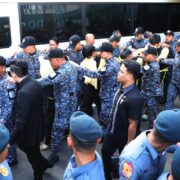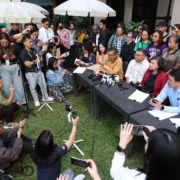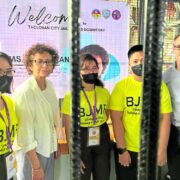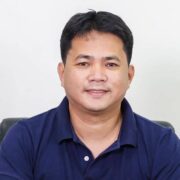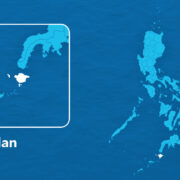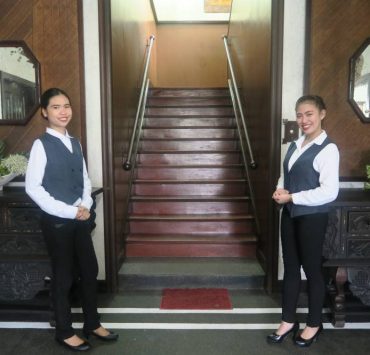Ateneo’s ‘lumad’ scholars stay true to their roots
and disaster, where he got a P50,000 honorarium, which he immediately gave as a startup fund for the Mindanawon scholars. “We did bits and pieces of fundraising,” he said.
Mindanawon’s registration with the Securities and Exchange Commission came out on Oct. 4, 2001, but the center had already been operating before that with only two office staff, Vina said.
Vina, herself, was one of the staff members handling finance and administrative work, and monitoring the scholars’ well-being, even providing support when they encountered difficulties in their academics.
Mindanawon also tapped volunteers enrolled in other courses to help the scholars.
“Bridging, including providing some tutor volunteers to assist the scholars in their subjects in mathematics, English and the sciences, was a big help,” Vina said. “But [aside from that] we also have a ‘buddy-buddy’ system, in which the scholars are helping each other hurdle their subjects.”
“They did well,” she said.
Alejo said that when he was about to be assigned in Davao, he had shared with Bishop Francisco Claver, a fellow Jesuit, his idea about working with indigenous peoples (IPs). “I shared with him how we need to develop some leaders among IPs deeply rooted in IP culture but equipped enough to face the challenges of the future as IP professionals,” Alejo told the Inquirer.
Space for books
He remembered lugging his books to Davao after his stint in London and his visit to the United States. “I was bringing lots of books and was [thinking] where to put them. I [came] from the United States where a number of people donated books to me,” he said.
Eventually, Mindanawon was given a space at the Jesuit house in AdDU, and that became the first home for his books. One day, he was praying at the Jesuit chapel on the building’s second floor, which was rarely used, when a thought bubble popped up.
“I was thinking that the chapel could be used for something else but there was no staircase,” he said.
Eventually, the Jesuits allowed Mindanawon to use the chapel as their office as long as they would use a separate stairway from the backdoor. So, Mindanawon had a bigger office and a space for its library, which at one time, housed the largest collection on Mindanao studies and culture.
Grounding
After this former building was torn down, Mindanawon had been allotted another space at the AdDU basement, next to the space where lumad scholars can hang out with friends and feel at ease.
“We provided space for them to hangout because there was no longer extra space within the campus,” said Vina, who took over as director of the program in August 2009 when its former executive director, Lea Vidal, decided to devote full time at AdDU’s campus ministry.
“The whole workshop room area is for them. They can do their assignments there. They can sleep, eat, even work on the computer or talk. It is also there where we invite tribal leaders to share and dialog with them. The next theme of our discussion is rootedness, so that even if they’re inside the Ateneo, they still won’t stray away from their culture,” Vina said.
In 2010, Alejo was assigned in Zamboanga City. Mindanawon operated as a nongovernmental organization until part of 2011, when then AdDU president, Fr. Joel Tabora, incorporated the initiative into the regular AdDU structure.
“It was a good thing that AdDU took the program under its wings,” said Alejo.
Vina still remembers the doubts and skepticism when the movers of Mindanawon first floated the idea of supporting the lumads in studying at AdDU.
“What will happen to the lumad inside Ateneo? They will surely get lost and be alienated from their own culture,” she recalled the initial reactions.
Now, two decades later, Mindanawon’s 67 graduates have unfailingly given back services to their communities.
Lawyer Emman Dapaing, Mindanawon’s first lawyer alumnus, has been a big help in advancing the land struggle of Mansakas in Maragusan, Davao de Oro, while engineer Kevin John Malinog, Mindanawon’s first civil engineer, had helped install a water system in the Blaan community in Lake Sebu, South Cotabato.
Their education has not alienated them from their culture.
“At least, we’ve proven [those naysayers] wrong,” Vina said. “We’ve never encountered our scholars straying away from their culture. [We tracked them] where they are now [and] we think they have served their communities well,” Vina said. INQ At least, we’ve proven [those naysayers] wrong . . . We’ve never encountered our scholars straying away from their culture




